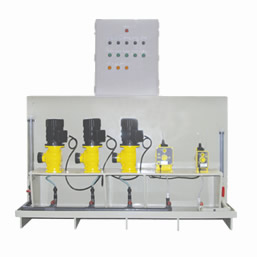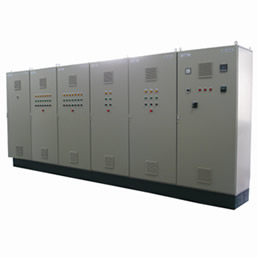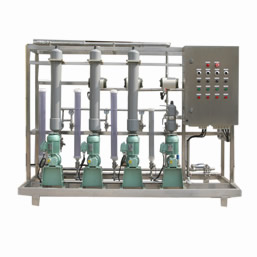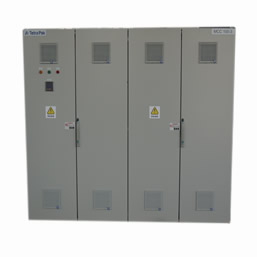Rockwell Automation is committed to enterprise interconnecti
Article provenance
:Online Time:2019-07-17 17:03
We have tens of thousands of assets that can provide all kinds of data, but how much of that data is really being used by us?"Keith Nosbusch, chairman and CEO of Rockwell Automation, asked representatives of media and analysts around the world in his speech at the Automation Perspective. It also played a prelude to the annual Automation Fair held in Houston the next day.
Rockwell Automation has more than 22,000 employees in 80 countries and regions worldwide, with annual sales of $6.35 billion in 2013. This year coincides with the 110th anniversary of its Allen-Bradley brand. Nosbusch believes that the company's long-term development and success can be attributed to integrity, passionate working attitude and profound industry knowledge. But he also said that "the emergence of new technologies is gradually changing the market pattern".
With the widespread application of Ethernet/IP in the field of discrete and process automation, and the interconnection of personnel, processes, equipment and data, producers are increasingly focusing on the commercial value of processing correct information at the right time within the enterprise. The high visibility of production data and supply chain information will become the future competitive advantage of manufacturers.
"We believe that we have reached the historic turning point brought about by the integration of the Internet of Things and interconnected enterprises," Nosbusch said.
The global population is about to break through 8 billion. Millions of people need to get out of poverty and the growing ranks of the middle class, all of which result in a strong demand for food, housing and transportation. This is not only a demand for manufacturers, but also increases the supply pressure of infrastructure, water resources and raw materials. The growing demand for scarce resources will prompt manufacturing to eliminate backward productivity factors, and $1 trillion is expected to be invested in improving resource efficiency, Nosbusch said.
Creating truly interconnected enterprises can enhance global competitiveness, because manufacturers can extract real-time data from a large number of nodes and connections connected to Ethernet in the industrial ecosystem and use these data to extract business value. Intelligent, secure and network-enabled architectures help to transform such data into useful information for guiding action. With the gradual evolution of this architecture, factories and supply networks will be further optimized, thus bringing sustainable competitive advantages to enterprises.
In order to provide production data for enterprises and make them produce commercial value by using these data, Rockwell Automation is committed to breaking the existing barriers, combining manufacturing automation with enterprise systems, and building interconnected enterprises. Interconnected enterprises will integrate cloud technology, mobile technology, big data and analysis, intelligent systems and security functions, bring us safer and more accessible food and other products, and effectively reduce waste in the production process.
Cloud technology can achieve remote access to equipment and information, massive information storage and complex analysis of computing capabilities. Mobile technology not only aims at devices, but also means that people can access relevant information anytime and anywhere, which makes information security more important. Big data and analysis functions are conducive to collaboration, and "there are more big data generated by manufacturing than in any other area," Nosbusch said.
"Internet of Things" is conducive to improving asset utilization, employee productivity, supply chain/logistics development, customer experience and innovation. Therefore, Cisco expects that Internet of Things technology will bring about a value of 14.4 trillion US dollars in the next 10 years. By 2022, global profits may increase by 22%.
"By letting employees understand the actual development of the enterprise, interconnected enterprises can transform data into information, then into knowledge, and ultimately into wisdom, thus creating real customer value," Nosbusch said. This process requires a generic and secure Ethernet infrastructure to integrate control and information.
For example, "King's Hawaiian makes delicious buns," Nosbusch says. "They also have 11 production lines connected via EtherNet/IP and monitored remotely from California. They also collect quality and production indicators in California and compare the efficiency of each production line... King's Hawaiian has become an interconnected enterprise.
Interconnected enterprises can bring significant commercial value to food and beverage factories. These industries fluctuate and change rapidly with seasonal changes, supply chain fluctuations, market demand changes and product changes. For the automotive industry, one of the driving factors to achieve interconnected enterprises is continuous improvement. Toyota can save $500,000 a year by identifying and correcting errors through real-time analysis of data from production and quality systems. "Of course, cost savings can only be achieved by ensuring that key decision makers have timely access to critical information," Nosbusch added.
Through remote asset monitoring, operation can be debugged and optimized globally. In addition, by linking system information, "we can understand what should happen and what actually happens," Nosbusch said. "The next investment will focus on the factory infrastructure level. This level of loss is of great value."
"We believe that we have reached the historic turning point brought about by the integration of the Internet of Things and interconnected enterprises." With the latest control, information and network technologies, Keith Nosbusch is confident of Rockwell Automation's ability to help customers improve productivity and profitability.




